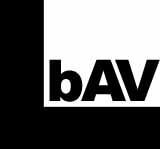Gabriel Bernardino, Chairman der europäischen Aufsichtsbehörde EIOPA, hatte gemeinsam mit den Chefs der beiden anderen europäischen Aufsichtsbehörden EBA und ESMA vor dem ECON-Ausschuss Rede und Antwort zu stehen.
Der Wirtschafts- und Finanzausschuss des Europäischen Parlamentes (ECON) hatte die drei Behördenchefs am 30. August zum Hearing nach Brüssel gebeten, und Bernardino – der erst jüngst auf einer Tagung in Stockholm am 5. September seine Vorstellungen zu einigen Kernfragen des Aufsichtswesens für EbAV und Versicherer skizziert hatte – zeigte sich gewohnt ambitioniert.

Laut Redemanuskript sagte der Portugiese zum Projekt des sogenannten European Single Rule Book:
EIOPA has been heavily engaged in the process of developing a single rule book for insurance and pensions in the EU. In the absence of international standards – unlike in the banking sector where you have the Basel accord – EIOPA has been responsible for developing the technical regulatory framework of insurance and pensions risk-based supervision, work which encompasses all legislative layers from level 1 to Guidelines.
So weit so gut, doch kann man zumindest kritisch anmerken, dass „insurance and pensions“ von Bernardino hier grundsätzlich in einem Atemzug genannt werden, auch in Zusammenhang mit einem risikobasierten Regime. Das erinnert an die These vom Level-Playing-Field.
Dass EIOPA an dem Holistic Balance Sheet festhält und auf deutsche EbAV weitere Auswirkungsstudien samt entsprechendem Aufwand zukommen, ist kein Geheimnis mehr, wurde von Bernardino von dem Ausschuss aber erneut bestätigt:

EIOPA is working to improve definitions and methodologies for assessing the holistic balance sheet and will run further assessments. My aim is to present the next Commission with further tested technical proposals for a European risk-based prudential regime that appropriately reflects the specific reality of pension funds.
Es ist offenbar das Ziel des EIOPA-Chefs, die Kompetenzen seiner Behörde auszudehnen, wohl auch in Abgrenzung zu den nationalen Aufsichten und bezüglich der Durchgriffsrechte auf einzelne Unternehmen, Auszüge:
…let me highlight that in order to enact EIOPA’s power to ban or restrict financial activities, sectorial legislation in insurance and pensions is needed.
Looking at the current challenges there are three key points where I see a clear need for evolution: to strengthen EIOPA’s operational independence, to reinforce our independent challenging role towards National Competent Authorities and to enhance EIOPA’s mandate and powers to ensure better coordinated supervision.
I would like to thank the ECON Committee for their statement calling for a need for independent budget lines and to make the ESAs independent from their national member authorities. Furthermore it is extremely important to ensure a degree of flexibility in the budgetary framework in order to be possible to attract highly qualified staff, especially in critical areas for our mission going forward like the supervision and validation of internal models and the independent assessment of supervisory practices.
…in order to ensure an adequate and consistent level of supervision, for the benefit of consumer protection and financial stability, it is fundamental to strengthen our independent challenging role towards National Competent Authorities.
…it is essential to avoid the burdensome case-by-case discussions on EIOPA’s access to individual company information.
…we need to take further steps to ensure better coordinated supervision at Union level. In this context EIOPA should be tasked with a centralized oversight role in the field of internal models and, as part of a step-by-step approach, consideration should be made to assign EIOPA an enhanced supervisory role for the largest important cross-border insurance groups.
Die Statements der drei Behördenchefs vor dem ECON sind online verfügbar:
Gabriel Bernardino, European Insurance and Occupational Pensions Authority.





